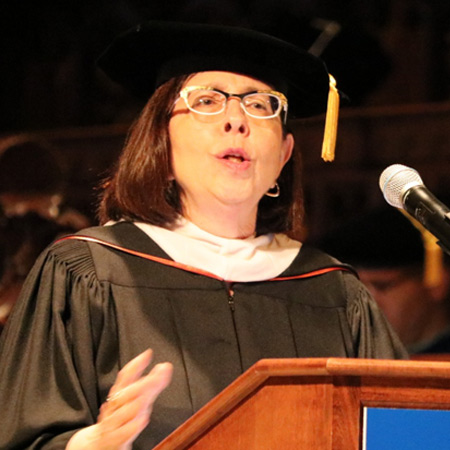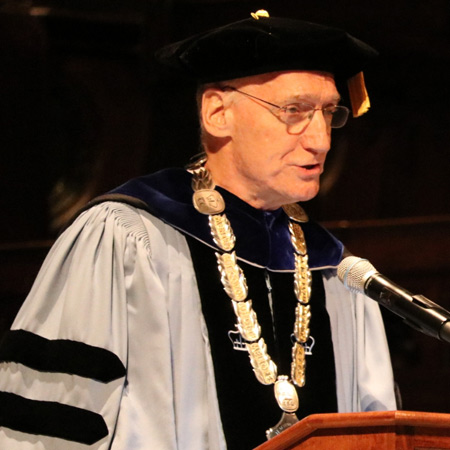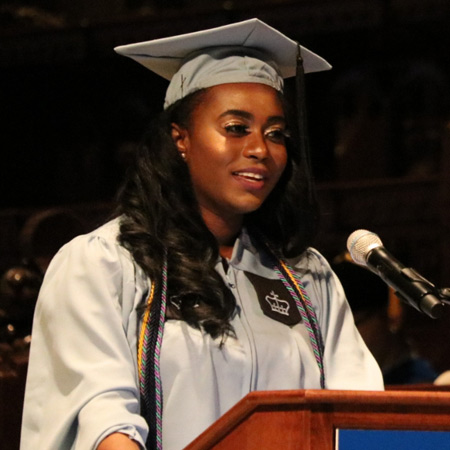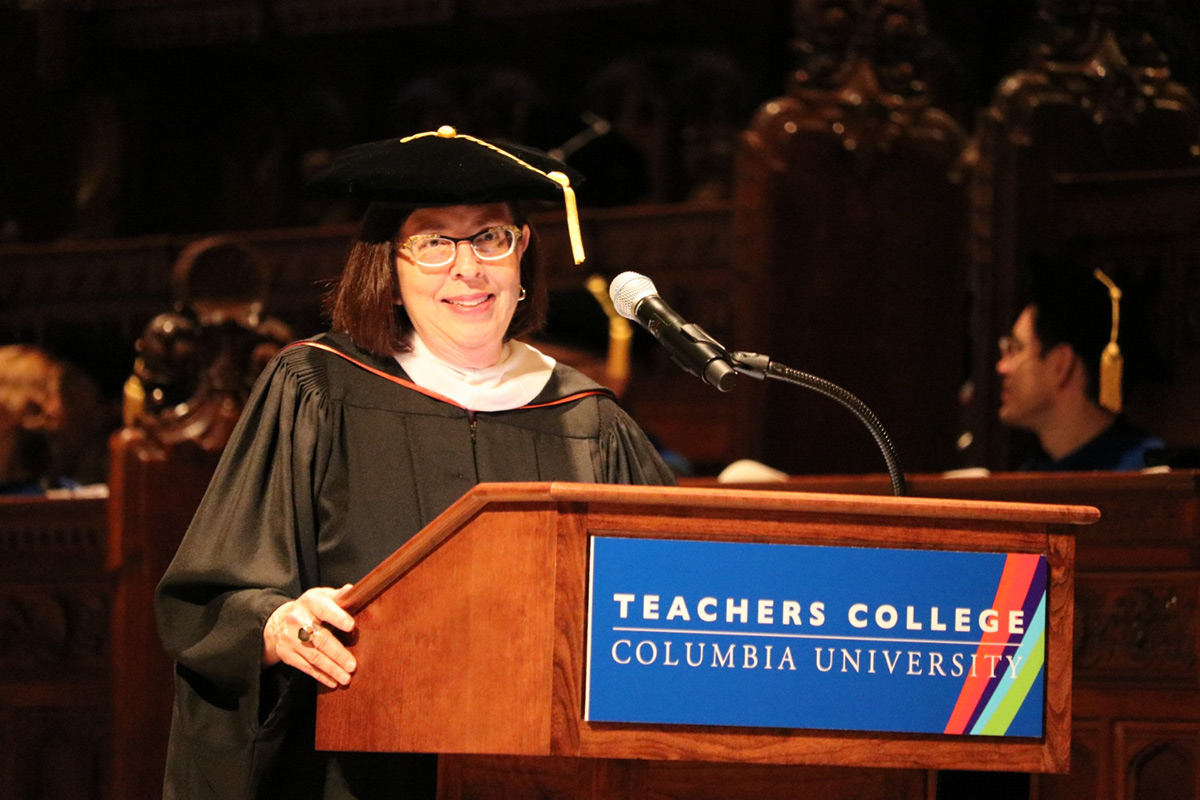“Make it count,” Sarita Brown told graduates of the Departments of Human Development, Organization & Leadership and International & Transcultural Studies at TC’s third master’s ceremony, held on Tuesday afternoon. “What each of you does right now matters. It always has. But right now it feels like it matters more.”
Brown, who received the College’s highest honor, the Medal for Distinguished Service, knows a thing or two about counting. Excelencia in Education, the non-profit she co-founded and leads, has helped create a better climate for LatinX young people in higher education and the job market in part by documenting their rising numbers to institutions and employers.
Education has the power to “mitigate whatever obstacles we encounter when we walk through a classroom door or on a college or university campus,” said Brown, citing her own rise, from becoming the first in her own family to attend college (at the University of Texas-Austin) to later being named Executive Director of the White House Initiative for the Education Excellence for Hispanic Americans during the Clinton administration. Still, she cautioned, today’s challenges, in a nation divided by politics and distrust, are no less formidable.
“You are entering the profession as the social contract between students and institutions is being re-negotiated,” she noted.

What each of you does right now matters. It always has. But right now it feels like it matters more.
TC President Thomas Bailey also referenced the changing social contract, citing “stereotypes and biases that warp perceptions of reality and infect public discourse” and “the persistence of racism, anti-Semitism, and discrimination, which poses an existential threat to our civilization as lethal as climate change is to our planet.”
He challenged the graduates to educate themselves “about the true nature and scope of the problems we face – instead of turning away in fear or denying that the problems exist at all” – and to strive to “understand what the world and feels like from each other’s vantage points.”

The persistence of racism, anti-Semitism, and discrimination...poses an existential threat to our civilization as lethal as climate change is to our planet.
Student speaker Jacquada A. Gray II (M.A., Higher & Post-Secondary Education) similarly stressed that “an equitable education is much more important than an equal education.”
“Equality is giving everyone in this room my Netflix password, Gray said. “Sounds like a pretty good deal, right? But that’s not equity. Equity is making sure that everyone in this room even has a device to watch Netflix on. Being an exemplary educator isn’t about teaching everyone the same thing and hoping for success. It's about ensuring that all students have the same support and the same opportunities to be successful.”

We are our ancestors’ wildest dreams. Many of us were not expected to be here. We were told that we were not good enough, smart enough, or even composed enough to be successful in such a space.
Gray, a first-generation student, said she was particularly humbled to represent her fellow graduates. “I am my ancestors’ wildest dreams,” she said, then corrected herself. “No sorry, we are our ancestors’ wildest dreams. Many of us were not expected to be here. We were told that we were not good enough, smart enough, or even composed enough to be successful in such a space. But all past obstacles and naysayers make this moment that much more meaningful.”
Violist Katy Ho Weatherly (Ed.D.’19) , accompanied by fellow Music & Music Education graduate Elsa Yung-Yung Lee, performed an original arrangement of “Cross-Country Medley.”
